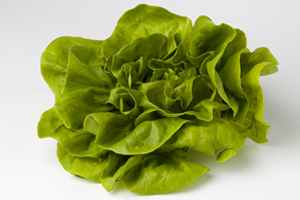 Of the three K vitamins, vitamin K1 (phytonadione) is the one we get from plant foods, and is the most important one for proper coagulation of the blood (or “Koagulation” in German, which is the origin of vitamin “K”). Without vitamin K we would eventually bleed to death from any small wound or bruise. It may also help prevent both osteoporosis and atherosclerosis. It plays a role in reducing inflammation and regulating cell growth.
Of the three K vitamins, vitamin K1 (phytonadione) is the one we get from plant foods, and is the most important one for proper coagulation of the blood (or “Koagulation” in German, which is the origin of vitamin “K”). Without vitamin K we would eventually bleed to death from any small wound or bruise. It may also help prevent both osteoporosis and atherosclerosis. It plays a role in reducing inflammation and regulating cell growth.
Consumption of vitamin K may also reduce your risk of contracting non-Hodgkin lymphoma. A study conducted by researchers at the Mayo Clinic found that those who had the highest intake of Vitamin K1 had the lowest risk of contracting the disease, slashing their risk by 45 percent.
Vitamin K1 is associated with higher bone mineral density, and thus is helpful in preventing osteoporosis and reducing the rate of bone fractures. It also reduces calcium buildup in the arteries, protecting against atherosclerosis or hardening of the arteries.
Though deficiency in vitamin k is uncommon, newborn infants, people who are malnourished or those who suffer from alcoholism are at the greatest risk of deficiency. Also, as absorption of vitamin K (and all other fat-soluble vitamins, such as vitamins A, E and D) depends on bile, those who have had their gallbladder removed may be at risk of developing a vitamin K deficiency. Some signs of deficiency are easy bruising, increased menstrual bleeding, nosebleeds, bleeding gums and blood in the urine.
It is a fat-soluble vitamin, and the best sources of it can be found in such green leafy vegetables as kale, collard greens, Swiss chard, broccoli, spinach, brussels sprouts, lettuce and parsley. It can also be found in vegetable oils, potatoes, tomatoes, oats and asparagus.














